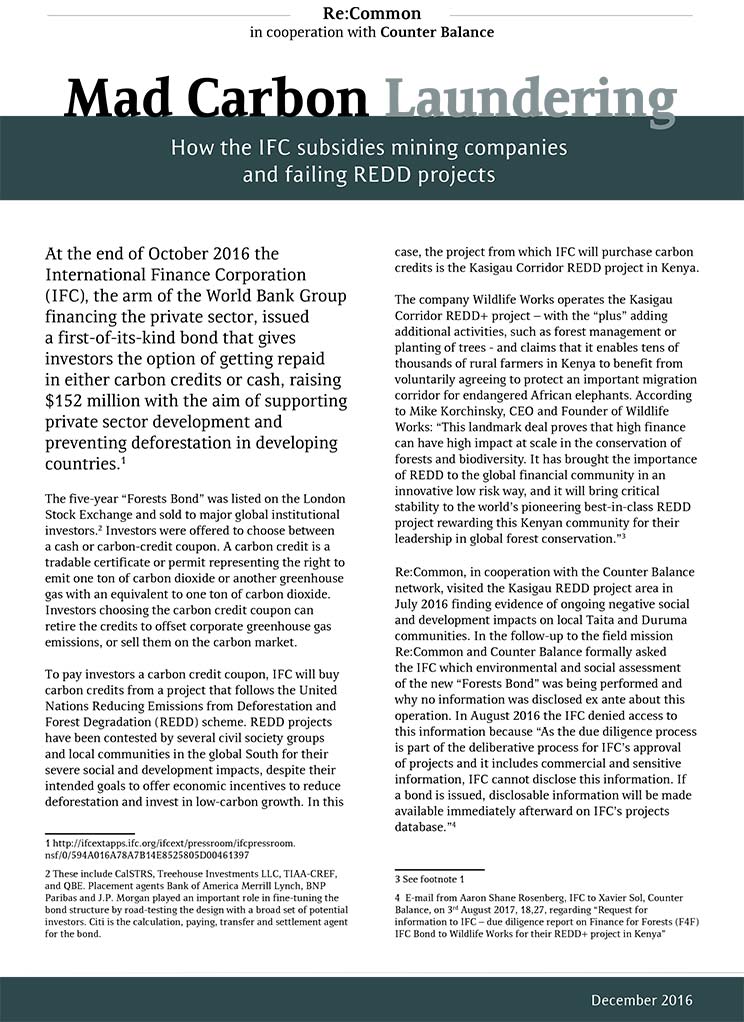At the end of October 2016 the International Finance Corporation (IFC), the private arm of the World Bank Group, issued a first-of-its-kind bond that gives investors the option of getting repaid in either carbon credits or cash, raising $152 million with the aim of supporting private sector development and preventing deforestation in developing countries.
To pay investors a carbon credit coupon, IFC will buy carbon credits from a project that follows the United Nations Reducing Emissions from Deforestation and Forest Degradation (REDD) scheme. REDD projects have been contested by several civil society groups and local communities in the global South for their severe social and development impacts.
The project from which IFC will purchase carbon credits is the Kasigau Corridor REDD project in Kenya. Wildlife Works operates it and claims that it enables tens of thousands of rural farmers in Kenya to benefit from voluntarily agreeing to protect an important migration corridor for endangered African elephants. Re:Common, in cooperation with Counter Balance, visited the Kasigau REDD project area in July 2016 finding evidence of ongoing negative social and development impacts on local Taita and Duruma communities, with pastoralists and ethnic minorities hit hardest by Kasigau Corridor project REDD land use restrictions.
What makes the Forests Bond further innovative is the fact that the IFC developed it with BHP Billiton, a global mining, metals, and petroleum company, with a much criticized environmental, human rights and development record. The mining giant provides a price-support mechanism for the IFC Forests Bond. If investors elect the cash coupon instead of the carbon credit coupon, BHP Billiton offtakes the carbon credits generated and delivered by the Kasigau Corridor REDD project at the price of $5.00 per credit.
The new Forests Bond is a clear example of “financialisation of nature”, where dubious and often failing market-based instruments such as carbon credits are resold through pure financial assets, such as bonds, allowing a controversial mining giant, such as BHP Billington, to portray itself as a leader in sustainability and carbon finance. As a public financial institution, the IFC plays a key role as guarantor of the new financial scheme and without its intervention the entire REDD+ project in Kenya might have been at risk. It is thus worth asking whether private interests and profits, justified under the banner of fighting deforestation and climate change, had come before public interest and development goals.

